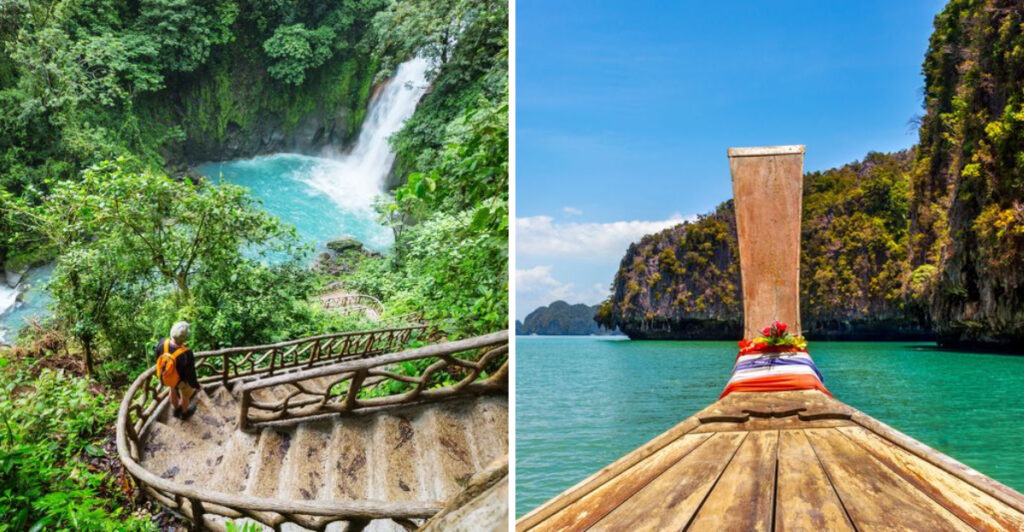Discover the countries that welcome travelers with open arms and those that pose significant challenges to tourists.
1. Canada
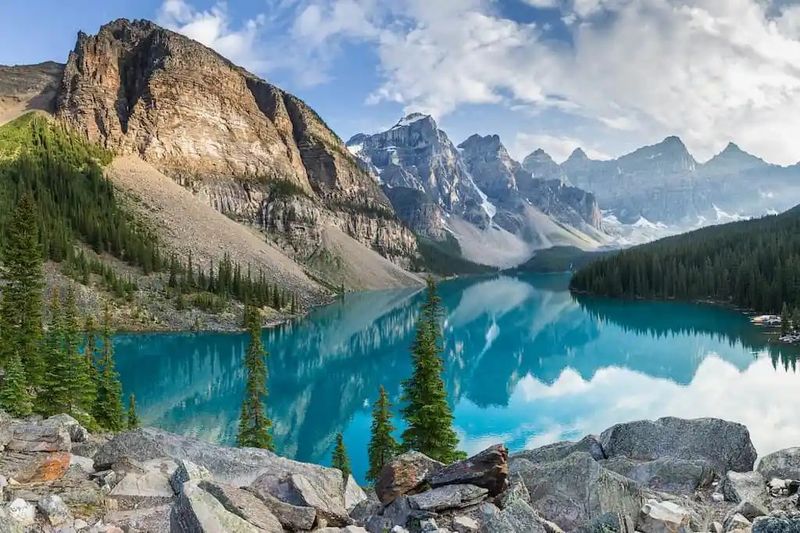
Canada opens its heart to visitors with its warm and inviting nature. The country’s visa policies are accommodating, allowing many nationalities to enter with ease. Visitors can enjoy the vibrant cities like Toronto and Vancouver, famous for their multicultural atmosphere and breathtaking natural beauty. Canadians are known for their politeness and friendliness, making tourists feel at home. Whether exploring the majestic Rockies or experiencing the cultural richness of Québec City, travelers find a safe haven here. Canada is not just a destination; it’s an experience filled with warmth and genuine appreciation.
2. New Zealand

New Zealand’s dedication to hospitality shines through its ‘Welcome to New Zealand’ initiative, highlighting its eagerness to host travelers. This island nation offers straightforward visa processes, making visits hassle-free. Known for its breathtaking landscapes, from serene beaches to rugged mountains, it provides a backdrop of tranquility. Safety and serenity go hand in hand here, with low crime rates and a friendly, laid-back atmosphere. Visitors often leave with a sense of belonging, having experienced the country’s unique blend of adventure and peace.
3. Portugal

Portugal embraces travelers with open arms, offering incentives like the golden-visa programs for long-term stays. The locals are known for their genuine warmth, often inviting tourists for a coffee or sharing tips on hidden treasures. Its excellent connectivity through major hubs like Lisbon, Porto, and Faro ensures easy access. The country’s rich history and vibrant culture make it a captivating destination. Whether it’s exploring ancient castles or savoring local delicacies, Portugal offers a unique blend of tradition and modernity.
4. Japan

Japan is a realm of polite service and impeccable infrastructure. Tourists enjoy streamlined visa processes and are met with unparalleled courtesy. From the punctual trains to spotless subways, the precision here is remarkable. Visitors navigate easily through vibrant cities like Tokyo and Kyoto, experiencing both the futuristic and the traditional. The Japanese culture of respect permeates every interaction, making travelers feel valued. It’s a land where ancient traditions meet cutting-edge technology, offering a unique journey filled with discovery and respect.
5. Ireland

Ireland promises a warm embrace with its famed ‘Céad Míle Fáilte’ or ‘One Hundred Thousand Welcomes.’ The open visa policy allows many nationalities to explore its lush landscapes and vibrant culture without hassle. Dublin’s lively streets and Galway’s music sessions draw visitors into the Irish way of life. The people are welcoming, often engaging tourists in friendly chats over a pint. Rich in festivals and traditions, Ireland offers a year-round celebration of life, ensuring every visitor leaves with cherished memories.
6. Costa Rica

Costa Rica stands as a beacon of ecotourism, promoting sustainable travel through well-managed national parks and wildlife reserves. The ‘Pura Vida’ lifestyle reflects the locals’ easygoing positivity and hospitality. Visa-free for many, it welcomes adventurers to explore its rainforests, beaches, and vibrant biodiversity. Visitors often find themselves immersed in the culture, enjoying guided hikes or sharing meals with locals. It’s a destination where nature and community thrive together, offering an enriching experience for those seeking adventure and tranquility.
7. Australia
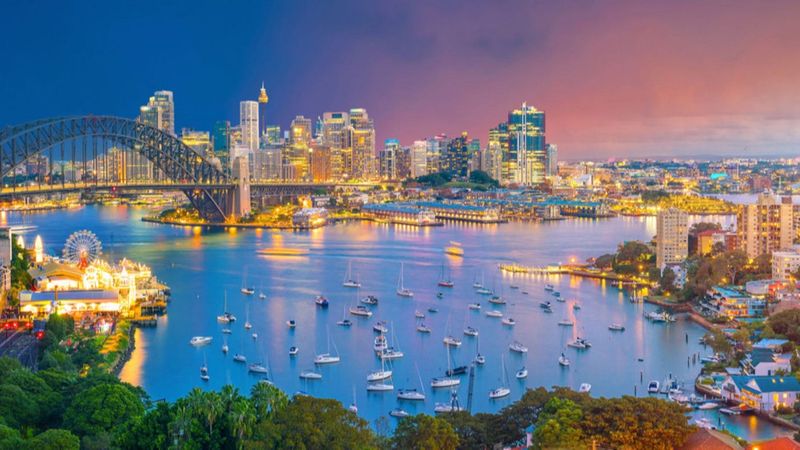
Australia opens its doors with simple eVisitor visas for EU nationals, making travel arrangements straightforward. This diverse land offers a myriad of attractions, from the Great Barrier Reef to the Outback. The friendly, outdoor-oriented culture invites visitors to join in water sports, hiking, or simply enjoying a barbeque by the beach. Australia’s landscapes and cultural landmarks provide endless opportunities for exploration and connection. It’s a place where the spirit of adventure meets the warmth of the local community.
8. Singapore

Singapore stands out with extensive visa exemptions, welcoming a diverse array of visitors for short stays. This city-state is renowned for its world-class cleanliness, safety, and efficiency. Tourists are enamored by its multicultural food scene, especially within the famous hawker centers. English is widely spoken, easing travel communication. Singapore’s blend of modernity and tradition creates a unique atmosphere where visitors can explore cultural districts and futuristic architecture. It’s a destination that seamlessly merges safety, convenience, and rich cultural experiences.
9. Iceland

Iceland’s breathtaking landscapes, from geysers to glaciers, captivate those in search of adventure and natural beauty. As part of the Schengen Area, it offers visa-free stays for many, making travel convenient. Reykjavik’s locals are proud to share their culture, and visitors often find themselves exploring the stunning scenery or relaxing in geothermal pools. The country’s unique geological features provide a backdrop for unforgettable experiences, drawing in adventurers and peace seekers alike. Iceland’s allure lies in its ability to enchant and inspire.
10. Thailand
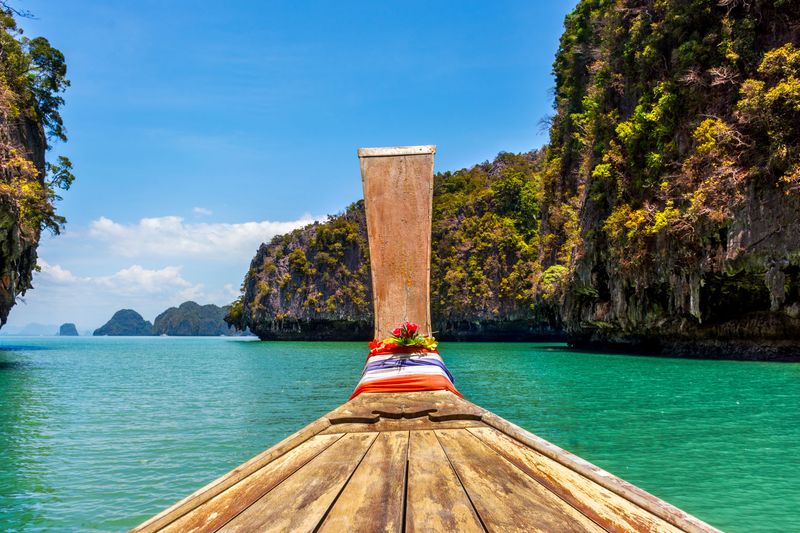
Thailand greets travelers with a ‘Mai pen rai’ mindset, embodying graciousness and calm. Visa on arrival and visa-free stays make it accessible for many. From bustling markets to serene temples, the country’s diversity caters to all interests. Whether savoring street food or exploring luxury resorts, Thailand offers a blend of affordability and opulence. The vibrant culture, welcoming locals, and stunning landscapes create a dynamic environment for exploration. Visitors leave with memories of a land filled with warmth, flavor, and tradition.
11. Georgia

Georgia invites visitors with its one-year visa-free access, offering ample time to explore its rich heritage and dramatic landscapes. The warm Supra tradition, where locals invite tourists to share wine toasts and hearty meals, exemplifies Georgian hospitality. From the vibrant arts scene in Tbilisi to the UNESCO-listed monuments, there’s much to discover. Mountain villages and historical sites provide a cultural tapestry that enchants every traveler. Georgia is a place where history and modernity coexist, creating memorable experiences for those who visit.
14 Countries That Don’t Want Tourists
1. North Korea

North Korea is infamous for its strict control over tourism. Travelers must join state-sanctioned tours, monitored by government minders. Independent exploration is not allowed, and interactions with locals are heavily restricted. While visiting iconic sites like Pyongyang’s monuments, tourists experience a tightly controlled environment. The consequences for any missteps can be severe, including detentions. Despite the allure of its unique culture and history, North Korea remains a challenging destination for those seeking freedom and spontaneity in travel.
2. Syria

Syria’s ongoing civil war since 2011 has created a perilous environment for tourism. Active combat zones, frequent airstrikes, and kidnappings make it a high-risk destination. Travelers face significant dangers, and foreign agencies strongly advise against visiting. Visa processes are fraught with delays and rejections, leaving potential tourists with little hope of safe passage. The country’s rich history and culture are overshadowed by the current instability, making it one of the least accessible places for travelers seeking adventure or connection.
3. Yemen

Yemen is plagued by civil conflict and terrorism, with various factions controlling different regions. This makes any journey extremely life-threatening. Maritime piracy is a significant concern, especially for those considering sea travel. The lack of tourist infrastructure further complicates visits, with airports and roads often under militia control. Despite its rich cultural heritage, Yemen remains a destination fraught with danger and uncertainty. The challenges of visiting outweigh the allure of exploration, making it one of the least tourist-friendly countries globally.
4. Libya

Libya presents serious challenges for tourists with its fragmented government and militia-controlled regions. The absence of tourist visas and the presence of high kidnap and robbery rates make it a risky destination. Independent travel is virtually impossible, and even UN relief workers face severe restrictions. The constant skirmishes and lack of security create an environment where safety is not guaranteed. Libya’s rich history is overshadowed by the current instability, deterring those who might seek to explore its cultural and historical sites.
5. Somalia

Somalia’s widespread piracy along its coast poses significant risks to tourists. Al-Shabaab terrorist activities further endanger civilians, with frequent attacks on hotels and markets. The scarcity of open embassies makes obtaining tourist visas nearly impossible, and diplomatic channels are unreliable. Those considering a visit face immense challenges, including threats to personal safety and lack of infrastructure. Somalia’s natural beauty and cultural richness are overshadowed by these dangers, making it one of the most inhospitable destinations for travelers seeking adventure or cultural immersion.
6. Afghanistan

Afghanistan’s ongoing conflicts and Taliban rule create an environment hazardous for tourists. The restrictive visa process allows only select groups like journalists and aid workers. The country’s minimal tourist services and frequent clashes make independent travel nearly impossible. Hotels rarely meet international standards, and transport is heavily guarded. Despite its rich history and natural beauty, Afghanistan remains inaccessible to most, with the risks often outweighing the rewards. The cultural allure is overshadowed by the imminent dangers travelers face.
7. Eritrea

Eritrea imposes severe restrictions on both citizens and visitors, with compulsory military service and closed borders. Tourist visas are rarely granted, and approved travelers are often monitored by government minders. The heavy surveillance and lack of independent travel options deter many would-be tourists. Despite its historical and cultural attractions, Eritrea’s political climate creates a challenging environment for exploration. The absence of open tourism channels and limited accessibility make it one of the least welcoming destinations for travelers seeking cultural experiences.
8. South Sudan

South Sudan’s ethnic conflicts and food insecurity create life-threatening conditions for tourists. The lack of tourist visas and scarce infrastructure make visits nearly impossible. Travel requires a letter of invitation from recognized NGOs or UN missions, followed by a lengthy approval process. The environment is fraught with danger, and the challenges overshadow any potential for exploration. South Sudan’s rich cultural heritage is overshadowed by its ongoing struggles, deterring those who might seek to learn more about its people and traditions.
9. Lebanon

Lebanon’s economic meltdown and security concerns create an unpredictable environment for tourists. Frequent protests and clashes between political factions add to the instability. While many Western passports receive a 30-day permit on arrival, sudden rule changes can strand travelers. The rich cultural history and vibrant cities offer allure, yet the risks involved make it a challenging destination. Despite the beauty of its landscapes and the warmth of its people, Lebanon’s current political climate poses significant challenges for tourists.
10. Iran

Iran’s complex visa rules and strict behavior codes present challenges for tourists. The process often takes weeks and can be revoked due to diplomatic tensions. Tourists must adhere to strict dress codes, and photographing certain sites is forbidden. Despite these restrictions, Iran’s rich cultural heritage and historical sites draw those willing to navigate the complexities. Visitors must be prepared for monitoring and potential interrogations, making it a destination for the more adventurous traveler. The allure of its history must be weighed against the potential challenges.
11. Venezuela

Venezuela’s economic collapse and soaring crime rates create a perilous environment for tourists. Unreliable visas and frequent flight cancellations add to the uncertainty. The country’s rich culture and natural beauty are overshadowed by these challenges, making it one of the least accessible destinations. Despite its allure, the risks of travel often outweigh the potential rewards. The instability and lack of basic services, such as healthcare and security, deter those who might seek to explore its vibrant culture and landscapes.
12. Mauritania

Mauritania’s persistent security threats from terrorist cells create a hazardous environment for tourists. The opaque visa procedures and underdeveloped infrastructure further complicate potential visits. Outside Nouakchott, roads are hazardous, and lodging options are limited. Despite its unique landscapes and cultural heritage, Mauritania’s challenges deter those who might seek adventure. The combination of security risks and lack of facilities makes it one of the least tourist-friendly destinations, overshadowing the potential for cultural exchange or exploration.
13. Turkmenistan
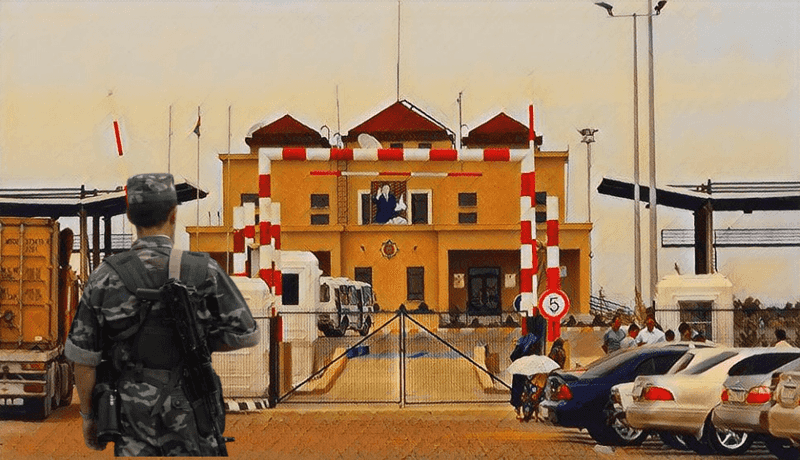
Turkmenistan’s reputation as a closed-off society is well-deserved, with tourist visas only available through approved tours. Independent travel is practically impossible, with itineraries and accommodations preapproved by authorities. Omnipresent surveillance deters spontaneous interactions with locals. Despite its rich history and cultural sites, the restrictive environment creates significant barriers for tourists. The allure of exploration is tempered by the reality of strict government control, making it a challenging destination for those seeking freedom and spontaneity in travel.
14. Sudan
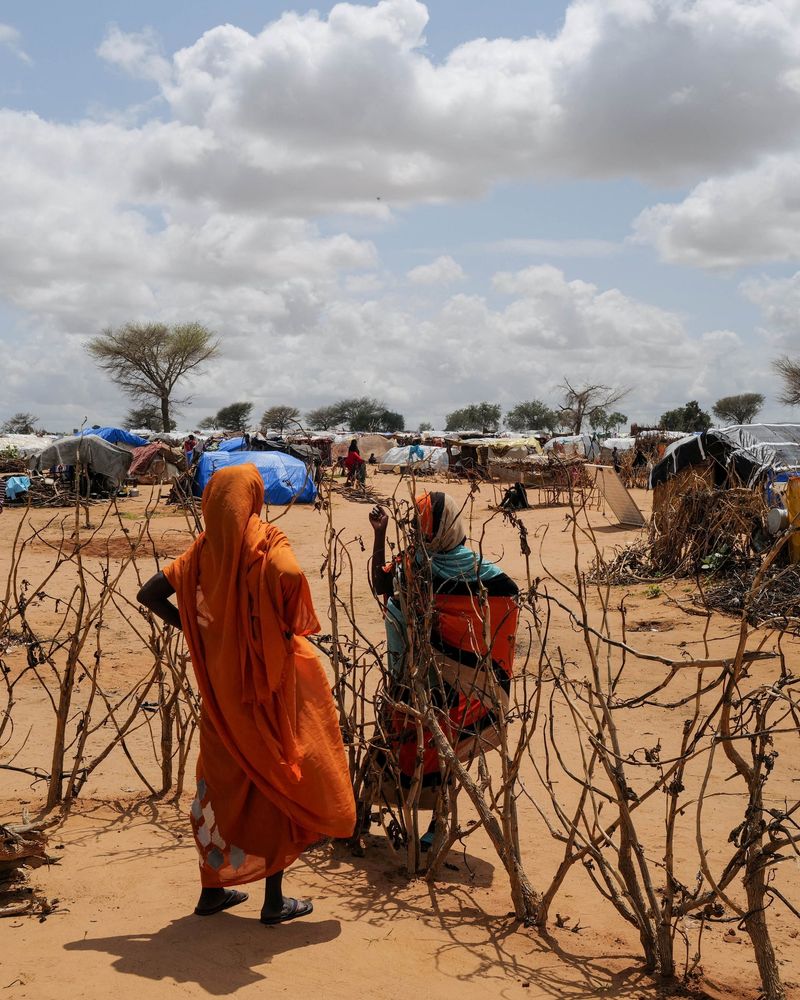
Sudan’s ongoing armed conflicts in regions like Darfur and Kordofan create a hazardous environment for tourists. The visa process is riddled with red tape, requiring multiple security clearances. The dysfunctional infrastructure adds to the challenges, with major highways in disrepair and unreliable basic services. Despite its rich cultural history, Sudan’s current instability deters those who might seek to explore its landscapes and traditions. The risks involved in travel often outweigh the potential rewards, making it a challenging destination for tourists.

